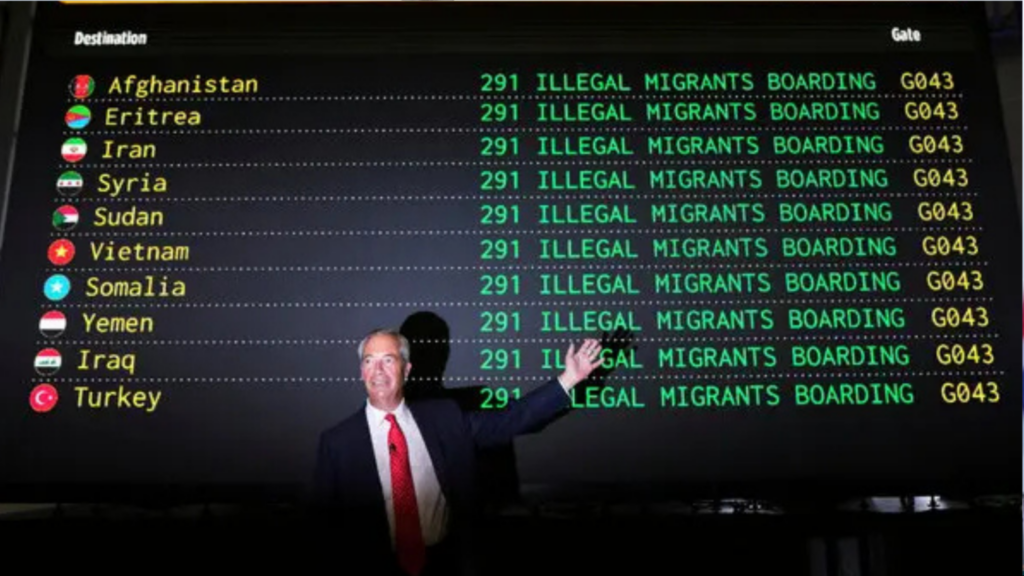Realism in the New Global Economy
How are power politics re-shaping global markets?
As the Cold War reached its conclusion, the Soviet Union’s collapse was widely seen in the West as an unequivocal triumph for liberal democracy. US State Department official, Francis Fukuyama, captured this zeitgeist when he proclaimed that Western liberalism represented the ‘end point of mankind’s ideological evolution’ (Fukuyama, 1989). This sense of ideological vindication strengthened Western confidence that liberal institutions possessed the capacity to tame international anarchy. Emboldened by this conviction, Western policymakers launched an ambitious campaign to consolidate liberal international architecture. Over the subsequent three decades, this vision materialised through comprehensive trade liberalisation, systematic deregulation of global financial markets and the unprecedented rise of transnational capital flows (Chatham House, 2025).
Today, however, that liberal consensus lies in ruins. The 2008 financial crisis brutally exposed the structural vulnerabilities embedded within the global economic system. Simultaneously, China’s meteoric rise undermined Western assumptions about the universality of liberal democratic norms. The resurgence of populist nationalism around the world laid bare the liberal order’s institutional fragility while the COVID-19 pandemic in 2020 delivered another blow. In this transformed landscape, the private sector confronts an entirely new paradigm. As the liberal global model crumbles, realist theory emerges as an indispensable framework for understanding how power politics, strategic rivalry and zero-sum competition are reshaping global markets and recalibrating investment risk across all sectors.
Realism as a Framework
In the study of international relations, realism is a broad tradition united by the belief that the international system is fundamentally anarchic. Hans Morgenthau crystallised this harsh reality when he characterised international politics as nothing less than a ‘struggle for power’ (Morgenthau, 1948, p. 13). Through this lens, states emerge as ruthlessly rational actors navigating an inherently zero-sum environment where relative gains and strategic advantage invariably eclipse aspirations for cooperation or mutual prosperity (Rousseau, 2002, p. 395).
When cooperation does materialise, it remains purely instrumental, dictated by shifting power calculations rather than enduring trust or shared principles.
This realist worldview stands in stark opposition to the post-World War II international economic architecture which was instead predicated on liberal faith in interdependence, multilateral cooperation and institutional governance. The Bretton Woods system epitomised this optimistic vision, establishing multilateral pillars — the IMF, the World Bank and the General Agreement on Tariffs and Trade — to regulate global commerce (Ramirez, 2025). Yet beneath this veneer of multilateral cooperation lay a more troubling reality: these institutions predominantly served the US imperative to secure unfettered access to international markets.
Decades later, the liberal promise has spectacularly unraveled. Free trade expansion, rather than delivering universal prosperity, exacerbated economic inequality both within and between nations, igniting a virulent populist revolt against the liberal international order (Chatham House, 2025). In this fractured environment, geopolitics has reasserted itself as the primary engine of financial volatility and systemic risk.
Geo-economic Snapshot
The inverse relationship between geopolitical risk and economic growth, as illustrated, provides compelling empirical validation of realism’s core thesis: power competition and threat perception constitute, not peripheral disturbances, but fundamental structural forces governing geo-economics. The risk index’s dramatic peaks correspond precisely with major geopolitical disruptions — the 2008 financial meltdown, Russia’s annexation of Crimea, the COVID-19 pandemic and 2022 Ukraine war — each synchronised with declines in worldwide GDP growth. This stark correlation reveals an uncomfortable truth. Despite decades of integration, states remain vulnerable to the systemic shocks that realism sees as inherent to an anarchic world.
Understanding Risk
Flashpoints, from the Red Sea, to Ukraine, to Taiwan, highlight the systemic shocks affecting global commerce. Houthi attacks near Yemen have turned vital shipping lanes into combat zones, raising transit costs and intensifying logistics competition (Krane, 2024). Russia’s invasion of Ukraine severed European access to key strategic materials, exposing the fragility of global supply chains (Muggah and Rohozinski, 2024). Plus, a potential Chinese assault on Taiwan — home to 90 per cent of advanced chip production — would stand to weaponise semiconductors thereby triggering economic disruption worldwide (Davidson and Lin, 2024).
This cascade of crises signals a major paradigm shift: geopolitical strategy is displacing market efficiency as the dominant force governing global business. In this context, traditional risk models anchored in default probabilities and currency fluctuations have become dangerously obsolete. Contemporary investors must grapple with entirely new variables: a state’s capacity and willingness to weaponise capital flows, impose foreign ownership restrictions or unleash sudden regulatory warfare (Financial Times, 2025). These disruptions emerge from political calculations that routinely defy quantitative prediction, rendering conventional forecasting models increasingly irrelevant. In this transformed landscape, astute investors must evaluate fundamentally different risk categories:
- Political Alignment: Do your operations complement national strategic objectives or do they invite political exclusion and retaliation?
- Regulatory Agility: Can your enterprise rapidly pivot across jurisdictions to circumvent hostile policy shifts?
- National Interest Exposure: Are your assets vulnerable to expropriation, sanctions or regulatory capture under expanding definitions of national security?
As geopolitics reclaims centre stage, power politics are displacing institutional safeguards and market logic. Traditional models based on openness now fail to capture today’s fractured reality. For investors, risk increasingly depends on geopolitical alignment, strategic exposure and susceptibility to state coercion, from sanctions, to regulatory warfare. Importantly, realism provides more than theoretical insight: it offers a practical framework for decoding how power and national interest shape markets. Those who rely on outdated tools risk serious misjudgment in a world where political forces increasingly determine economic outcomes.
Bibliography
Davidson, H. and Lin, M., 2024. Taiwan’s semiconductor industry is booming – and the world is watching. The Guardian, 19 July. Available at: https://www.theguardian.com/world/article/2024/jul/19/taiwan-semiconductor-industry-booming [Accessed 19 Jun. 2025].
Fukuyama, F., 1989. The End of History? The National Interest, (16), pp.3–18.
Hook, L., 2025. Oil in the new age of volatility. Financial Times, 14 June. Available at: https://www.ft.com/content/1a5c8449-69b6-4be6-acce-11d4e273da6c [Accessed 20 June 2025].
Iacoviello, M., 2024. Geopolitical Risk Index. [online] Available at: https://www.matteoiacoviello.com/gpr.htm [Accessed 19 Jun. 2025].
Krane, J., 2024. Houthi Red Sea attacks have global economic repercussions. Arab Center Washington DC. Available at: https://arabcenterdc.org/resource/houthi-red-sea-attacks-have-global-economic-repercussions/ [Accessed 19 Jun. 2025].
Morgenthau, H.J., 1948. Politics among nations: The struggle for power and peace. New York: Alfred A. Knopf.
Muggah, R. and Rohozinski, R., 2025. The mineral wars. Horizons: Journal of International Relations and Sustainable Development, (29), Winter 2025. Available at: https://www.cirsd.org/en/horizons/horizons-winter-2025-issue-no-29/the-mineral-wars
Ramirez, C.H., 2025. The Post‑War Evolution of Globalisation and International Order: From Liberal to Neoliberal International Order. Global Society, pp. 1–29.
Rousseau, David L., “Motivations for Choice: The Salience of Relative Gains in International Politics.” The Journal of Conflict Resolution 46, no. 3 (2002): 394–426.
The Royal Institute of International Affairs (Chatham House), 2025. Competing Visions of International Order: 01 The fracturing of the US‑led liberal international order, 2 March. London: Chatham House. Available at: https://www.chathamhouse.org/2025/03/competing-visions-international-order/01-fracturing-us-led-liberal-international-order (Accessed: 18 June 2025).
World Bank, 2024. GDP growth (annual %). Available at: https://data.worldbank.org/indicator/NY.GDP.MKTP.KD.ZG [Accessed 19 Jun. 2025].



